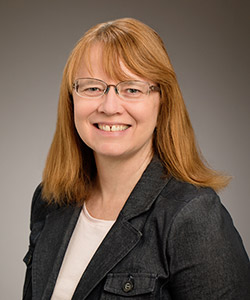HDFS is the Place for You
Our approach to HDFS recognizes that entrenched societal inequalities and prejudices in the United States and worldwide have every-day effects on people's lives. Structural racism, micro-aggressions, sexism and heterosexism, transphobia, homophobia, poverty, white supremacy, violence, a lack of respect and valuation of child care and elder care, ableism, bullying, and food insecurity are just some of the social problems informing our work.
Why is it essential for us, as researchers, teachers, providers, and mentors, to recognize and incorporate social inequality? Because we know that they create stress, isolation, and despair, which leads to compromised mental, physical, emotional, and social health and disparities in education, employment, substance use, and access to resources.
Essential to our work is a resiliency perspective that orients us to strengths rather than deficits. We value and examine the cultural perspectives, subjectivity, initiative, and creativity that people bring to bear on their own lives and the lives of loved ones, colleagues, and students. Our goal is to create knowledge that is responsive to human needs and disseminated in ways that empower families and communities.
The murders of George Floyd, Breonna Taylor, and many other Black and brown people, as well as the COVID-19 pandemic, have galvanized our commitment to diversity, inclusion, equity, and antiracism. We strive to be a department that embodies and embraces difference because we want to reflect the world in which we live and because we believe that a variety of perspectives, rather than a single narrative, lead to more generative and inclusive knowledge and culture. Faculty, staff, and students will do their best work when they feel included and supported as people with histories, cultures, and ideas to be shared. Diversity and inclusion are essential steps towards equitable outcomes, but they are not enough. We are currently addressing our syllabi, policies, resource allocations, program priorities, and other relics and practices to see where we can remove barriers and promote equity in student access and success, faculty promotion and tenure, staff development, campus climate, community engagement, and our academic disciplines. This is a long-term commitment, and we hope that everyone who joins us, as a collaborator, new hire, or a new student, will share in it.
Undergraduate students have described our academic program as an "Opportunity that leads to more opportunities." We are proud that more than half of our students come from underrepresented backgrounds and find us to be a supportive home. While here, they carve their path with a menu of required and elective courses, internships, study abroad opportunities, student clubs, and more. Students gain a solid foundation in both human development and family dynamics within societal contexts. Their success at HDFS @ Illinois opens doors to careers in applied health, medicine, law, public policy, education and early care, social services, as well as HDFS.
Although similar to psychology, sociology, and social work, HDFS has a unique perspective rooted in our history as part of the University of Illinois' land-grant mission that values public engagement, outreach, and Extension. Fundamental to our work is the belief that the University should be relevant and useful to the people of Illinois and beyond. Although we are no longer Home Economics, HDFS strongly values the Home-Ec orientation to practicality; what we do should matter beyond the doors of our research labs and our classrooms. Our capacity for applied excellence is enhanced by our Family Resiliency Center and Child Development Laboratory and our Child Care Resource Service and The Autism Program – all of which serve the local community while also providing opportunities for student involvement through internships and cutting-edge research.
Our graduate program was recently ranked as #4 out of 48 HDFS programs in North America. Why? Because our students are rigorously trained, effectively-mentored, and financially supported. They graduate with outstanding research and teaching skills and a record of accomplishments. We are proud that virtually all of our Ph.D. students have graduated into postdoctoral fellowships, tenure-track positions, or policy analyst positions. Some have even obtained JD and MD degrees while also pursuing a Ph.D.
Everything we do in HDFS at Illinois is possible because we have outstanding faculty and staff committed to our students' well-being and success, the communities we serve, and our department as a whole. Getting research grants and publishing are highly-valued, but so are being an excellent teacher, mentor, or collaborator, developing new programs, stewarding resources, and showing up as leaders.
Enjoy our website and feel free to contact me, our Undergraduate Recruiter, or our Director of Graduate Studies if you have questions or would like more information.
Ramona Faith Oswald, Ph.D.
Professor and Head, Human Development and Family Studies
